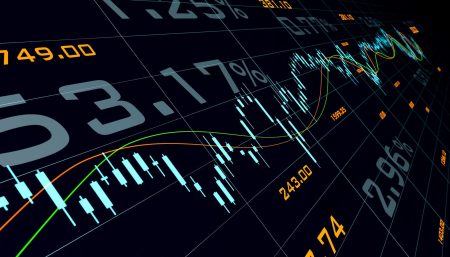Chief executives possess an intimate understanding of their companies, which makes their own stock purchases noteworthy for investors. This article highlights four companies where recent significant stock purchases by their respective CEOs may warrant attention. These companies vary in size, including two large-cap stocks, one mid-cap, and one small-cap, each reflecting distinct market opportunities and potential risks. Insights into these companies, led by their executives’ recent investment decisions, are indicative of the executives’ confidence in the future performance and stability of their firms.
Centene Corp. (CNC) stands out as the largest company in this analysis, boasting a market capitalization of $30 billion. As a managed care organization primarily serving Medicaid patients, it operates in a sector that might face uncertainties, particularly with anticipated changes to government health expenditures under political leadership. Despite potential threats posed to Medicaid funding, CEO Sarah London demonstrated her confidence by acquiring approximately $250,000 worth of shares, while CFO Andrew Lynn Asher invested around $1 million. Given the company’s current valuation—trading at merely 10 times earnings, 0.2 times revenue, and 1.1 times book value—the recommendation is to buy, supported by the equal distribution of analyst ratings that reflect a balance between buy and hold indicators.
Next is Markel Group Inc. (MKL), a specialty insurance firm based in Virginia with a market value of approximately $23 billion. CEO Thomas Gayner’s recent purchase of $155,000 in shares underscores his belief in Markel’s long-term prospects. Historically, the company has been profitable in 13 of the last 15 years, recently achieving a commendable 19% return on equity which showcases a positive growth trajectory. However, concerns loom for future earnings expectations in 2025, despite the stock currently trading at a modest eight times earnings, appealing to value-centric investors seeking solid returns.
HighPeak Energy Inc. (HPK), operating in the volatile energy sector, is noted for its mid-cap status and current market capitalization of about $1.9 billion. CEO Jack Hightower’s significant investment exceeding $4 million over recent months indicates his strong confidence in the company, especially given his successful track record in energy sectors. While oil prices have fluctuated—dropping from $100 to about $69 per barrel—potential upward movement could benefit HighPeak, which is currently trading at about $15 per share or 12 times earnings. As global oil trends stabilize, the stock presents an intriguing opportunity for those looking to invest in energy stocks.
The final company discussed is i3 Verticals Inc. (IIIV), a small-cap player in the payments system and software industry with a market capitalization of around $583 million. The recent $2.1 million acquisition of shares by CEO Gregory Daily reflects a turning point for the firm, which had previously reported six consecutive years of losses but is now on a trajectory toward profitability, with analysts forecasting growth from 2025 to 2027. Daily’s historical purchases have previously yielded satisfactory returns, and the company’s robust cash position relative to its debt further adds to its appeal as a speculative investment.
When assessing past recommendations related to insider buying, the results reveal a varied history for this investment strategy. Notably, stocks that were recommended to avoid, despite insider purchases, lagged significantly behind the S&P 500 index. In contrast, investments based on insider buys yielded decent, albeit slightly underwhelming returns compared to market benchmarks. This highlights the complexities of using insider purchases as a sole criterion for investment decisions and cautions investors to consider broader market conditions and company-specific fundamentals.
As a concluding note, the insights provided on these companies, led by their CEOs’ substantial stock purchases, suggest valuable investment considerations. However, it’s essential that potential investors conduct thorough diligence and consider both the inherent risks and market conditions unique to each firm before making financial commitments. The analysis underscores the necessity of meticulous investigation while following the movements of insiders within companies, further emphasizing that past performance is not guaranteed to predict future results.










